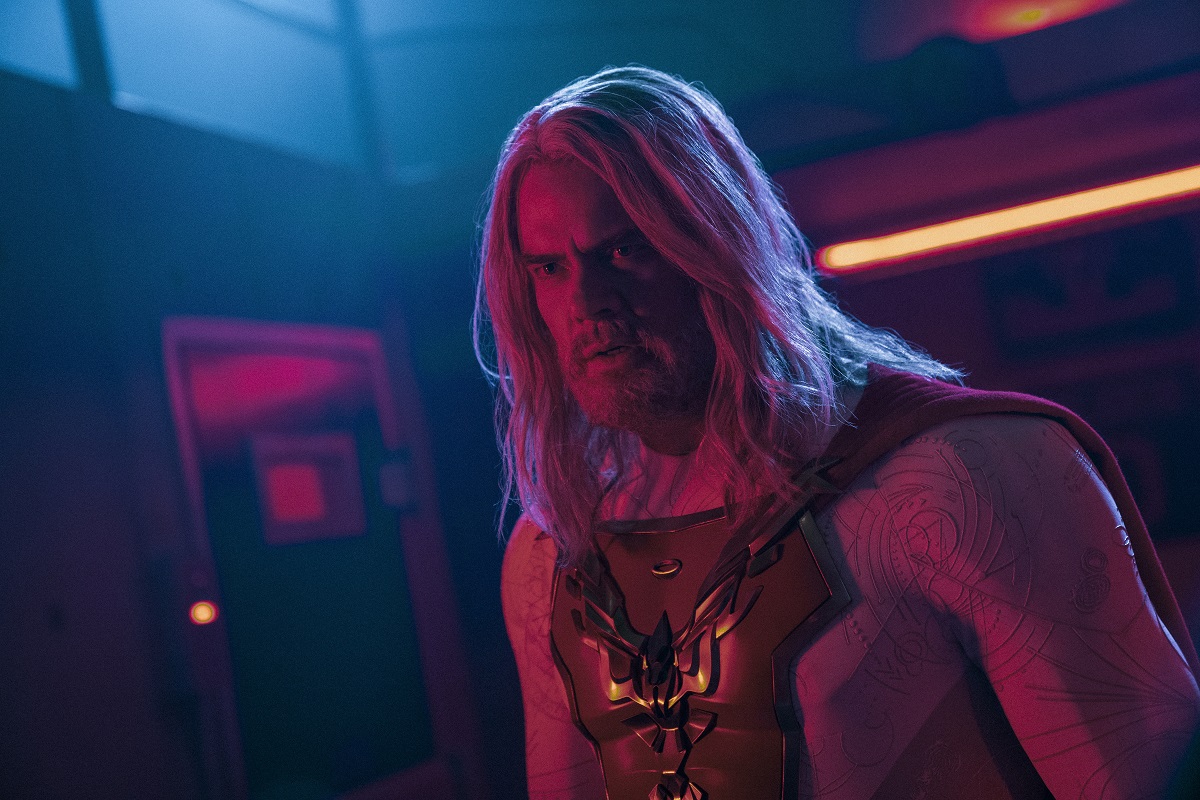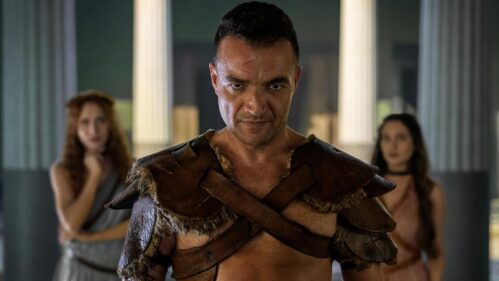The responsibility of heroism gets a fresh look in Netflix’s “Jupiter’s Legacy,” a show that will admittedly pale in comparison to more escapist and accomplished recent deconstructions of superhero culture like Amazon Prime’s “Invincible” and “The Boys,” but that has long stretches of complex drama and interesting performances that hold it together enough to make me curious to see a second season. So much of the eight episodes in the first season are dedicated to telling parallel origin stories that it can sometimes get weighed down with the burden of that structure, but there are interesting themes weaved through this adaptation of the comic series of the same name by Mark Millar (“Wanted,” “Kick-Ass“) and Frank Quitely. Originally developed by Steven S. DeKnight (the kingpin of the Starz “Spartacus” shows), the creator was replaced in the middle of the season by Sang Kyu Kim due to creative differences, and that tonal uncertainty and inconsistency can be felt at times, especially around episodes three and four. But the strength of the source material sustains because of Millar’s nuanced ideas about a topic that someone who has written for Spider-Man, Civil War, Fantastic Four, and much much more knows very well.

A characteristic scene for the present-day material in “Jupiter’s Legacy” opens episode six, wherein the Superman of this universe, The Utopian (Josh Duhamel), is making love to his wife Grace aka Lady Liberty (Leslie Bibb) when he detects a rogue comet that needs to be stopped. She isn’t so much upset as hopeful he can pick up the dry cleaning on the way home … from saving the planet. The Utopian aka Sheldon Sampson has two children: Brandon (Andrew Horton) and Chloe (Elena Kampouris). The former is a hero named The Paragon but dad isn’t sure his offspring really knows how to use his powers. The end of the premiere features a decision made by Brandon that violates dad’s heroic code and divides the Sampson family and really the entire planet about what heroes should be allowed to do. Meanwhile, Chloe is even more rebellious, carving her own path through life as the celebrity daughter of the most famous couple in the world.
Especially within the father/son dynamic that’s also played out on “Invincible,” the family half of “Jupiter’s Legacy” feels a bit overdone and underwhelming. Much more successful are the flashbacks, told in a wider aspect ratio, that detail the origin story of The Utopian, Lady Liberty, and four other heroes who would be known as The Union. It turns out that Sheldon’s father was one of several men who hurled themselves from a building during the stock market collapse of 1929, sending the wealthy Sampson clan into chaos. Sheldon’s brother Walter (Ben Daniels) tries to keep him in line, but Sheldon starts to have visions of a far-off island that he’s never seen before. Over the course of the season, young Sheldon, Grace, Walter, Richard Conrad (David Julian Hirsh), Fitz Small (Mike Wade), and George Hutchence (Matt Lanter) make it to that island, where everything changes.

Constantly cutting back and forth between the present-day material and the origin story for The Union with the only visual cue being a different aspect ratio (other than the removal of some pretty mediocre old-person make-up on Duhamel, Bibb, and others) gives “Jupiter’s Legacy” a unique rhythm. Despite my general aversion to origin stories, I vastly preferred the flashback material, as it has an old-fashioned adventure serial tone that’s almost Spielbergian at times. The present-day stuff has a habit of being clunkier, especially when the action kicks in. When the flashbacks are reminding me of Spielberg and the current stuff is reminding me of “The Amazing Spider-Man 2,” it’s not hard to pick a favorite.
Having said that, there are strong performers on both sides of the equation. Duhamel leans into his square-jawed handsomeness in a role that’s perfect for him and Kampouris makes even her broadly rebellious moments feel genuine. However, Daniels arguably steals the show, and not only because he looks so perfectly at home in the flashback material that he could have been a co-star of Errol Flynn. He also really captures what the last eight decades have done to these heroes, finding just the right tone of menace in the present material (and he has a wicked-cool superpower).
After eight hours, I’m not sure that “Jupiter’s Legacy” adds up to as much as it could have and there are definitely some issues to iron out that will hopefully come with a season-long showrunner for what feels like an inevitable second outing. By then, there will probably be even more shows that deconstruct the superhero genre. The jury is still out on whether or not this one will have a lasting legacy.
Whole season screened for review.












